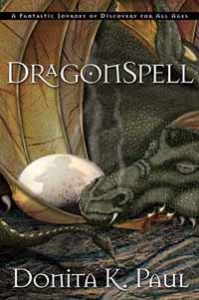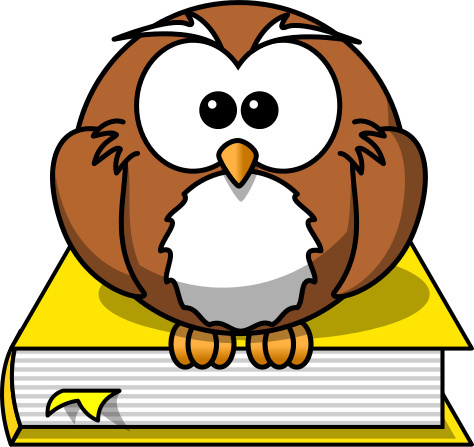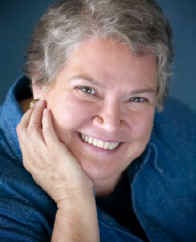Reading Classics
 I have a lesson I teach at workshops that captivates me. I love to teach it because it excites me, and I love watching people’s faces when the simplicity of this lesson dawns on them. Oddly, I don’t remember where the concept came from. Perhaps it was presented whole to me in some mostly forgotten class in college or even high school. Perhaps I pieced it together from lectures and textbooks over the years. Maybe I made the whole thing up. I’m good at making things up.
I have a lesson I teach at workshops that captivates me. I love to teach it because it excites me, and I love watching people’s faces when the simplicity of this lesson dawns on them. Oddly, I don’t remember where the concept came from. Perhaps it was presented whole to me in some mostly forgotten class in college or even high school. Perhaps I pieced it together from lectures and textbooks over the years. Maybe I made the whole thing up. I’m good at making things up.
I connected with this concept when a student asked, “What makes a piece of literature a classic?”
I knew the answer! I’m sharing it with you in the hope that it will impact your enjoyment of what you are reading.
Why do we read some books over and over? Why do some books end up in curriculum, each generation savoring the story of an author long dead?
Three things make a book a classic:
1. The work must identify the condition of man.
2. The work must shed light on a universal truth.
3. The work must inspire the reader to seek a higher plane.
This applies to the greatest story ever told.
The Gospel identifies humankind as sinners separated from God.
Universally, people struggle with the emptiness that living without God generates.
Believing in Christ and the resurrection after the punishment for an individual’s sin motivates people to accept salvation, read the Bible, and follow God’s Word.
 When DragonSpell first came out, my editor said, “This is destined to become a classic.”
When DragonSpell first came out, my editor said, “This is destined to become a classic.”
You can bet I wrapped that little sentence in fine cloth and treasured it in my heart. I revisit it when I feel like I’m not of much use.
The theme of DragonSpell is moving from a state of slavery to a servant attitude. Assessing the story through the lens of a classic might look something like this.
Condition of man: Kale has been given gifts that she doesn’t recognize.
Universal truth: To develop and utilize one’s gifts takes effort, courage, and guidance.
The higher plane: To use one’s gifts for the benefit of others without regard to fame or fortune.
Sometimes the higher plane can be identified as a moral warning.
In “Little Boy Blue,” the boy neglects his duty and loses his sheep. So the higher plane is choosing to honor commitments.
In “Goldilocks,” the little girl learns to use some discretion when entering into unknown territory and pillaging things belonging to others. The higher plane is to aim to be a wise explorer and therefore safe from bears. And the bears learn to lock their doors.
But classics are enjoyable whether you’ve identified them as such or not. So, please don’t start reading all your fiction as if there’s a test at the end. Enjoy the story. But also be aware that a classic might change your attitude. In fact, some books have changed the attitude of a multitude of readers. Uncle Tom’s Cabin and To Kill a Mockingbird are two that come to mind.
I confess that I generally liked the classics I was forced to read in school. Many of the messages stayed with me. Some of them I even read again when I didn’t have to. They read so much better when you don’t have to write a report afterwards.
But another thought rears a venomous snake-like head: Story impacts our minds and hearts. Wonderful, when the tale brings truth to a searching individual. Devastating, when the words lead a fragile personality down a path of deception, destruction, and distance from our loving Father.
Be careful what you read.
Be careful what you write.
Recommended books:
God of the Fairy Tale by Jim Ware
Finding God in The Lord of the Rings by Kurt Bruner and Jim Ware
Donita Paul is the author of the popular DragonKeeper Chronicles and The Chiril Chronicles. In addition she has authored the children’s books The Dragon and the Turtle and The Dragon & the Turtle Go on Safari.
Donita lives in Colorado where she mentors writers of all ages, teaching teenagers and weekly adult writing workshops.









































Good post, Donita.
I’ve often said the classics are classics for a reason, and you’ve shed some light on what that reason is. But let’s add one more factor to your list: the classic story must capture the imagination.
BTW, I’ve always enjoyed the classics too. Oldies but goodies!
I think a classic becomes a classic when each rereading furnishes a new insight (and the story is just as enjoyable to read when the surprise at ‘what happens next?’ becomes anticipation)
I read Dragonspell years ago when it came out, and I loved it. I was amazed to get on amazon and see that you’ve since written an entire series! I plan to pick them up as soon as possible.
I agree about classics. I remember my mom reading Freckles aloud, and seeing my brothers strive to become gentlemen. Same with the Little Britches books. There are books that I read over and over because they fascinate me, like Alas Babylon or the Merlin Conspiracy. I think Dave Farland talks about how children’s fiction has to have mystery, wonder, horror, humor and one other that escapes me. I find that my preferred reading has all those elements, no matter the genre.
Very good thoughts! Though I think step 3 can be the trickiest to achieve as it may not always apply well to each individual reader. The books I hold in my heart as classics are definitely the ones that fit all 3 criteria but I can see some of them speaking more to one person than another.
And your closing line is one too many writers & readers disregard. Very, very true. Philippians 4:8 applies.
It’s funny how the intellectual debates of whether objective truth exists, and whether life has any significance still rage on since the creation of man… but buried deep inside each human being is an instinctual acknowledgement of these very things.
Great works that celebrate such things as justice, honor, bravery, endurance, and love resonate within us emotionally in spite of our own intellectual objections or denials of those very same things, because the hunger for them is part of who we are as beings made in His image.
Although none of this explains the fascination with “Goodnight Moon”. That one has me completely baffled.
Great piece!
Nice blog, Donita. I remember when I first read DragonSpell just a little at a time. I couldn’t wait to get the next section to read more. What a wonderful, uplifting tale.
I think you’ve identified the basic ingredients in classic novels, Donita. What makes a book a classic, though, might be someone loving it enough to read it to the next generation, or require some in the next generation to read it. There has to be that step that goes beyond contemporaries reading and re-reading a book. There has to be a point when the next generation and the next also embrace it.
So this is my pitch to parents to read to their children! 😀
Thanks for such a thoughtful post, Donita. I wanted to post a comment from an email loop but didn’t have the author’s permission. She was asking for titles of Christian fantasy like Donita Paul’s DragonSpell because her daughter has read it literally–she made it clear she wasn’t exaggerating–dozens of time. So there’s the embryo of fulfillment of your editor’s prediction.
Becky
I think those criteria are pretty good, but there will always be some that don’t get the appeal. Like, the more people who feel this quality , the more likely it will be a classic, but not all classics appeal to everyone.
I’m going to apply this to “The Turn of the Screw” by Henry James, which is widely considered part of the literary canon and is also a story I like, to illustrate some problems I have with this theory.
1. The condition of man? Apparently some thoroughly ambiguous place between reason and insanity.
2. Universal truth? Psychology has more impact on an individual than reality does.
3. The higher plane? The closest thing would be an awareness of this story’s “universal truth.”
I like Donita’s insight, and I like this argument. Not because they both come to the same place, but because bad_cook addresses the unspoken answer at the end of the film In Love and War, about Ernest Hemingway rejecting his repentant love: “What if he had forgiven me?” The answer being, of course, that millions of American teenagers would have been spared the torture of all his ultra-depressing books. There is an element to some “classic” fiction that isn’t uplifting, and as students and then later readers with the freedom to choose, we have to wonder why our teachers made us read *that* book.
Sometimes, that which speaks powerfully or eloquently doesn’t point upward. In children’s fiction, certainly it must. But as the stories begin to face hard questions, the sorrows and/or weight of the story come to over-balance the lessons learned. In some cases, a “great” piece of fiction can so clearly communicate the lost and hopeless condition of the soul without God that the reader must do all the proving of God alone. The writer can’t help point to God, because the writer doesn’t know him. A classic doesn’t have to make room for God, but to tell a universal story without acknowledging His existence on any level demotes the story from classic to just a book. Maybe a good–or even great–one, but still “just” a book.
One of my favorite enforced reading books is a Ghanaian book called The Beautyful Ones Are Not Yet Born. Written in the 60s, it is everything hopeless, depressing, and gross (in some places). And everyone in my class (including me) HATED this book. Until the second to last chapter. The existentialism of the story continued unabated, but after one heartbreaking decision the character makes, I suddenly saw this book as a very clear “mirror” of the Biblical book of James. This author wanted a religion that was pure from the world and protected widows and orphans, but was instead surrounded by hypocrites who stole from the people they served and befouled their country merely by breathing. It’s a sad, miserable story, but if you hold it up to the Bible, suddenly you see why this world so desperately needs a Savior.
With the hard classics, I think that’s the key to reading them and successfully getting anything out of the story. If this story doesn’t paint a picture of Christ, how does it reveal a hole that only He can fill?
More than half of the books I read are classics in some respect (some are part of the canon, and others are simply old books that have survived the decades/centuries). I figure that they’re still around for a reason, and I read classics of all kinds of genres and from various cultures. I liken it to learning at the feet of the masters, since a good book is a good book regardless of form, subject, or century. Not all the classics I read are enjoyable or even interesting, but I can always learn something about the writing craft.
And I’ve never been been wowed by a “modern” book like I have been repeatedly by classic stories. They just rock, pure and simple. Like how people gasp in amazement when they see a soaring Gothic cathedral but they shrug at a slick, gleaming skyscraper.
When DragonSpell first came out, my editor said, “This is destined to become a classic.”
You can bet I wrapped that little sentence in fine cloth and treasured it in my heart. I revisit it when I feel like I’m not of much use.
And I fully intend to shove the books that changed my entire paradigm that direction as quickly and forcefully as possible. 0=)
I enjoyed your thoughts on what makes a classic, a classic.